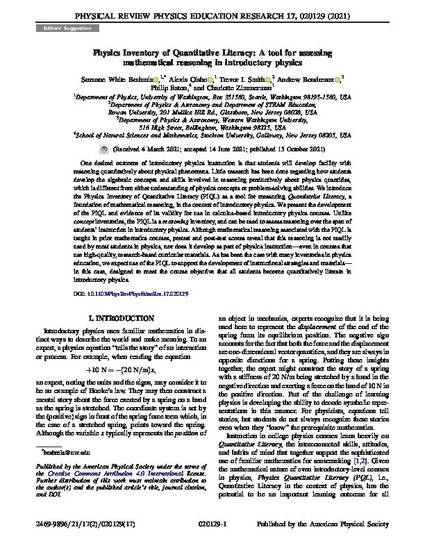
- assessment,
- scientific reasoning,
- problem solving,
- physic education research
One desired outcome of introductory physics instruction is that students will develop facility with reasoning quantitatively about physical phenomena. Little research has been done regarding how students develop the algebraic concepts and skills involved in reasoning productively about physics quantities, which is different from either understanding of physics concepts or problem-solving abilities. We introduce the Physics Inventory of Quantitative Literacy (PIQL) as a tool for measuring Quantitative Literacy, a foundation of mathematical reasoning, in the context of introductory physics. We present the development of the PIQL and evidence of its validity for use in calculus-based introductory physics courses. Unlike concept inventories, the PIQL is a reasoning inventory, and can be used to assess reasoning over the span of students’ instruction in introductory physics. Although mathematical reasoning associated with the PIQL is taught in prior mathematics courses, pretest and post-test scores reveal that this reasoning is not readily used by most students in physics, nor does it develop as part of physics instruction—even in courses that use high-quality, research-based curricular materials. As has been the case with many inventories in physics education, we expect use of the PIQL to support the development of instructional strategies and materials—in this case, designed to meet the course objective that all students become quantitatively literate in introductory physics.
